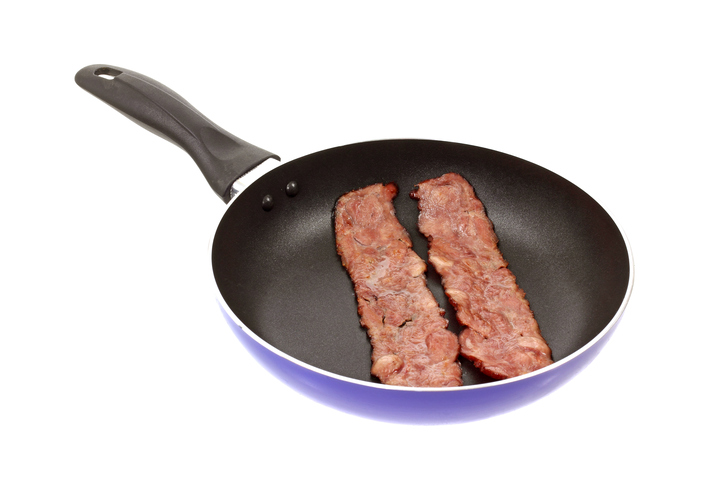
Everybody loves bacon, right? There's bacon-wrapped this, and bacon stuffed that, and there are so many types of bacon too. But when it comes to bacon, not too many people think of healthy, especially in the Black community because it's pork. So with the invention of turkey bacon, many bacon lovers think they are eating healthier, but are they really?
“Turkey” combined with any food makes us think “healthy” and “low calorie.” But you may just want to read the package labels when it comes to all turkey products. Here's why:
But when you look at comparing turkey bacon vs. pork bacon, we can compare nutrition facts. When comparing products from the same company (one of the leading producers of packaged meats):
- a serving of pork center-cut bacon has 60 calories, 35 calories from fat, 210 mg of sodium, 1.5 grams of saturated fat, 3.5 grams of total fat, 15 mg of cholesterol and 6 grams of protein.
- a serving of turkey bacon from the same company has 35 calories, 25 calories from fat, 180 mg of sodium, 1 gram of saturated fat, 3 grams of total fat, 15 mg cholesterol, but only 2 grams of protein.
It’s important to note that turkeys don’t have a belly to slice bacon from (well, turkeys do have a belly, but you aren’t going to get very big slices). Meat processors make turkey bacon from ground up turkey and flavor it to taste like bacon. Ground up dark meat is layered on ground up light meat, and the product is kind of like turkey sausage. These layers of different shades of meat, using ground turkey, allow the processors to add in as little or as much fat as they like. In pork bacon, the amount of fat is dictated by how fat the pig belly was.
MUST SEE: "Healthy" Foods That Are Really Killing You Slowly
The difference between servings of pork bacon and turkey bacon is only about 25 calories. Turkey bacon is leaner, but it has less protein.
While turkey bacon sometimes are modestly healthier than their beef counterparts, they’re often equivalent in calories, fat, and sodium.

And just a few slices of bacon can max out your daily recommended intake of salt – less than 1,500 milligrams according to the American Heart Association. Two ounces of turkey bacon has more than 1,900 milligrams of sodium. The same amount of pork bacon contains roughly 1,300 milligrams. In addition to increasing your risk of heart disease, high sodium intake raises the likelihood of kidney stones.
So what's the bottom line? “Turkey” in a product doesn’t always make it better. With everything, do it in moderation. Even if you eat pork bacon, don't eat the whole package, limit yourself to...
...two strips weekly. Or turkey bacon, watch the sodium and other "made-with" products added to it to make it bacon. Those can be harmful too.
If you choose turkey bacon, here's three things to remember:
Don't add oil or butter to the pan.
Drain cooked bacon on a paper towel to absorb excess grease.
Choose the low-sodium bacon when available.
So you don't have stop eating regular bacon "cold turkey" to be healthy. Just be smart about your choices.









